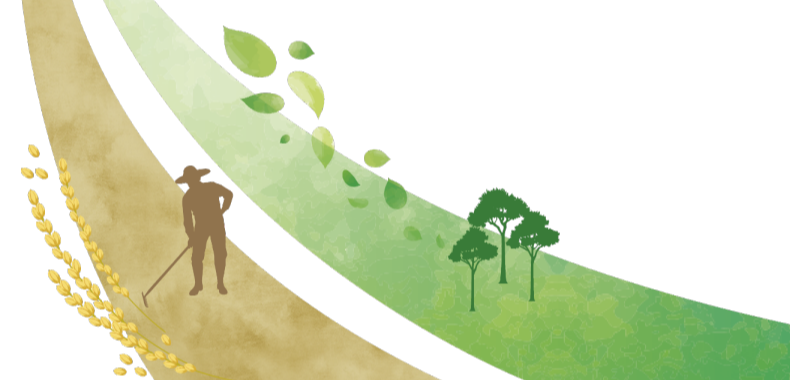SEED FUNDING JOINT PROGRAMMES
Cambodia
Transforming Cambodia’s food systems to become more sustainable, inclusive, and resilient


PROJECT TITLE | Transforming Cambodia’s food systems to become more sustainable, inclusive, and resilient |
| Context | Cambodia’s National Pathway is the outcome of an extensive consultation process, involving more than 2,000 people throughout thirty dialogues, which identifies four priority areas, namely healthy diets for all, empowerment of youth, women and vulnerable groups, resilient livelihoods and food systems, inclusive governance. Acknowledging the risks posed by climate change to hard won development gains and as a co-founder of the Alliance of Champions for Food Systems Transformation, Cambodia is prioritizing the integration of climate change and food systems transformation, building coherence across the agendas. The Council for Agricultural and Rural Development, the government agency coordinating food security and nutrition initiatives in Cambodia, is leading collaborative efforts to translate national aspirations into concrete action. |
| PUNOs | FAO, WFP, UNICEF |
| Contribution to SDGs | SDG 2 Zero Hunger |
| Contribution to other SDG transitions | Climate, biodiversity, pollution |
| Duration | August 2024 – July 2025 |
| Expected financial leverage | $3 million |
| Alignment with SG Call to Action | Policy integration; Food systems governance; Inclusive and participatory design; Private sector engagement |
| Outcomes | The Joint Programme fosters an enabling environment for food systems transformation by enhancing national capacities and policy frameworks, identifying opportunities to unlock financial streams, and strengthening advocacy efforts for food systems transformation. The JP provides crucial support to the alignment of the climate and food agendas, accelerating progress towards resilient, sustainable and inclusive food systems. |
| Partners | Council for Agricultural and Rural Development (CARD) will be the main government counterpart and will coordinate the government activities in conjunction with other key Ministries, including:
|
| Outputs |
|
New technologies catalog for sustainable food systems in the Asia-Monsoon region

©2023 JIRCAS
November 2024 Update
The Technology Catalog (Ver. 3.0) for the Asia-Monsoon region, developed under the Green Asia project, was released on November 13, 2024, on the JIRCAS website, in line with Japan’s Sustainable Food Systems Strategy “MIDORI.”
Nine new scalable technologies from the National Institute of Advanced Industrial Science and Technology (AIST) and Japanese universities have been added, bringing the catalog to 40 technologies. These innovations build on the contributions of JIRCAS, NARO, FFPRI, and FRA and are designed to support sustainable food systems in the Asia-Monsoon region.
- Access the press release: https://www.jircas.go.jp/en/release/2024/press202419
- Technology Catalog (Ver.3.0) : https://www.jircas.go.jp/en/greenasia/techcatalog
- The Green Asia project:https://www.jircas.go.jp/en/greenasia
October 2023 Update
- The Technology Catalog (Ver. 2.0) for Asia-Monsoon region was released on September 29, 2023 on the JIRCAS website in line with Japan’s Sustainable Food Systems Strategy “MIDORI”.
- Eight new technologies for forest conservation and fisheries resource management that can contribute to both productivity improvement and sustainability have been added, bringing the catalog to 31 technologies derived from the joint research results of the Japan International Research Center for Agricultural Sciences (JIRCAS), the National Agriculture and Food Research Organization (NARO), the Forestry and Forest Products Research Institute (FFPRI), and the Japan Fisheries Research and Education Agency (FRA).
- These scalable technologies for agriculture, forestry and fisheries are intended for dissemination in the Asia-Monsoon region to promote the transformation into sustainable food systems.
- Browse the technologies in this catalog: https://www.jircas.go.jp/en/greenasia/techcatalog.
- Access the press release: https://www.jircas.go.jp/en/release/2023/press202313
April 2023
The Japan International Research Center for Agricultural Sciences (JIRCAS) has developed a compilation of applicable technologies which were developed in Japan or through international collaboration over the past 10 years and are expected to contribute to the establishment of sustainable food systems in the Asia-Monsoon region. The catalog serves as a reference to various stakeholders in the Asia-Monsoon region, including government officials, researchers, extension officers, producers, and the private sector. JIRCAS expects to add more technologies in the future, including results from forestry and fisheries research, and newly developed technologies.
